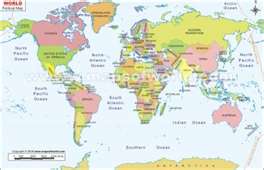 In this connected world, when Arab revolutions threaten, gas prices in the United States rise because of uncertainty. An actual disruption of oil shipments from the Middle East would cause an even steeper rise in prices.
In this connected world, when Arab revolutions threaten, gas prices in the United States rise because of uncertainty. An actual disruption of oil shipments from the Middle East would cause an even steeper rise in prices.
If the Euro currency collapses, American banks will be affected, and so will American exporters and American jobs.
As China’s middle classes increase, they will demand the same living standards as American middle classes, raising the price for oil and other commodities.
If drought causes famine in Somalia, the possibility grows that militant Islamists will take over the country, with the potential for bases that could foment terrorism elsewhere, including in the United States.
If corruption persists in Middle Eastern countries, the likelihood increases that citizens will bring in governments, either by revolution or election, directed by Islamists. Islamists often have a reputation of concern for the less well off, as well as less susceptibility to corruption. The new governments may or may not be friendly to U.S. interests.
 What happens in distant places affects us, yet Americans remain woefully ignorant of other countries and cultures. A 2006 poll of young adult Americans conducted for the National Geographic Education Foundation, for example, found that six in ten respondents couldn’t find Iraq on a map, even though Americans had been fighting in the country since 2003.
What happens in distant places affects us, yet Americans remain woefully ignorant of other countries and cultures. A 2006 poll of young adult Americans conducted for the National Geographic Education Foundation, for example, found that six in ten respondents couldn’t find Iraq on a map, even though Americans had been fighting in the country since 2003.
Our elected officials make decisions based in large part on the expressed opinions of voters. If those opinions are not well-informed, the decisions probably won’t be, either.

